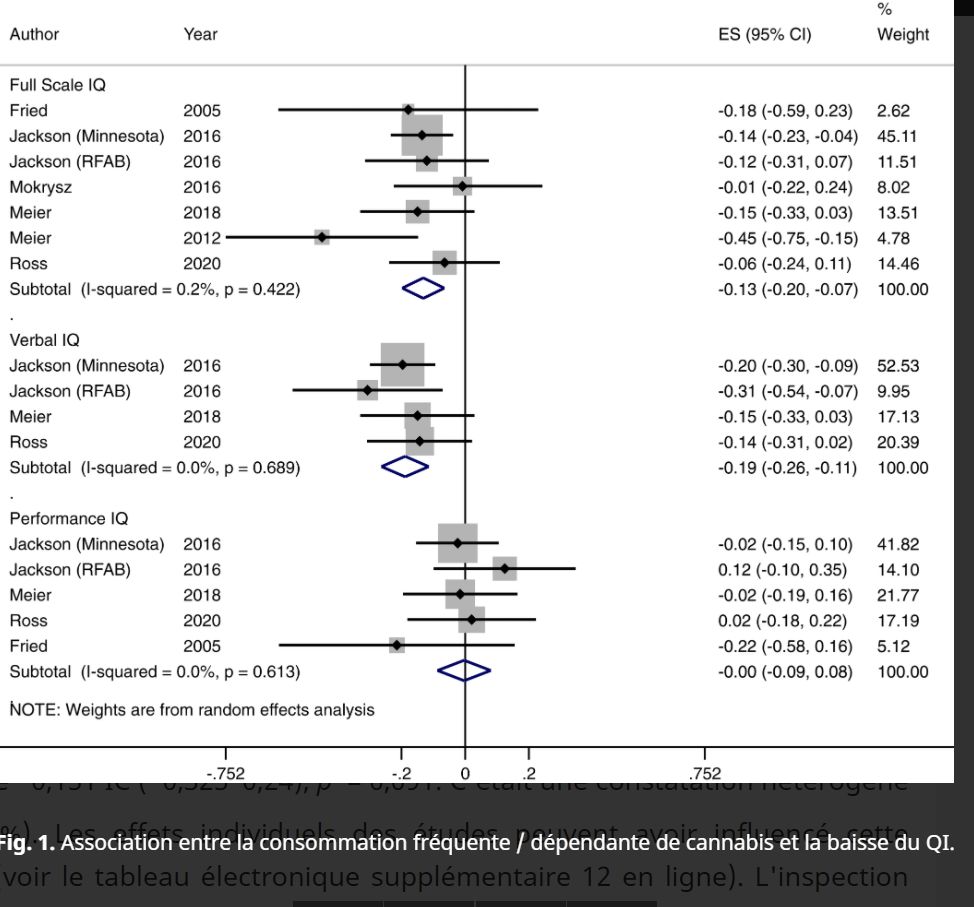Intelligence quotient decline following frequent or dependent cannabis use in youth: a systematic review and meta-analysis of longitudinal studies
Published online by Cambridge University Press: 27 January 2021 Sophie Sabherwal
Previous systematic reviews and meta-analyses of cross-sectional data assessing the effect of cannabis on cognitive functioning and intelligence show inconsistent results. We hypothesized that frequent and dependent cannabis use in youth would be associated with Intelligence Quotient (IQ) decline. This study is a systematic review and meta-analysis. We searched Embase, PubMed and PsychInfo from inception to 24 January 2020. We included studies with non-treatment seeking samples and pre- and post-exposure measures of IQ. We requested data from authors if summary data was not available from published work. We preregistered our review with PROSPERO (ID no. CRD42019125624). We found seven cohort studies including 808 cases and 5308 controls.
We found a significant effect for the association between frequent or dependent cannabis use in youth and IQ change, Cohen's d = −0.132 (95% CI −0.198 to −0.066) p < 0.001. Statistical heterogeneity between studies was also low at I2 = 0.2%. Study quality was moderate to high. This translates to an average decline of approximately 2 IQ points following exposure to cannabis in youth. Future studies should have longer periods of follow up to assess the magnitude of developmental impact.














